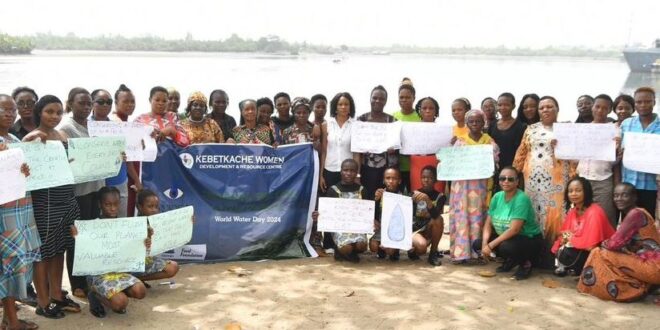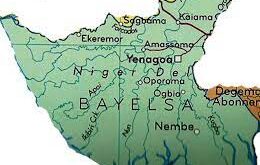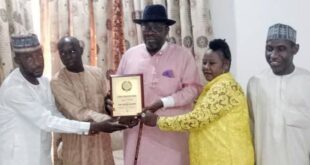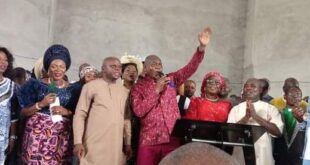By Paul Williams
As the world marked the World Water Day on Friday, March 22, women from communities in the Niger Delta have risen against lack of access to pollution-free drinking water that has bedeviled the region following oil exploration activities by multinationals.
Celebrated annually on 22 March, the World Water Day became a UN observance day in 1993, and “seeks to focus attention on the global water crisis and raise awareness of the 2.2 billion people living without access to safe water.”
This year’s theme, ‘Water for Peace’, focuses on the critical role water plays in the stability and prosperity of the world, while noting that when water is scarce or polluted, or when people have unequal or no access, tensions can rise between communities and countries.
In the Niger Delta, lack of access to potable water is made even worse by the activities of oil giants, which by-product has for decades polluted the land, air and rivers, degrading the environment and pushing millions of community people into poverty.
On Friday, March 22, women and girls from communities in the Niger Delta (in Rivers, Akwa Ibom, Bayelsa and states), gathered in Port Harcourt, under the aegis of Kebetkache Women Development and Resource Centre, to draw global attention to the “horrendous” impact of oil exploration activities on their water supply, the attendant communal crisis created by lack of access to water and the even more impact on women, children, aged and people living with disability.
Executive director of Kebetkache Women Development and Resource Centre, Chief Dr Emem Okon, represented by programme officer, Mrs Idongesit Smart, noted that women use water more than any other member of the household, adding that “water is very important when it comes to a woman’s life.
“This is because women use water to wash their children’s clothes, their husband’s clothes, during their monthly period, and generally to ensure a clean and healthy home.
“Actually, women use water to do everything. Without water, they cannot have a good life.
“So today, as we join women all over the world to celebrate World Water Day, we want the world and our governments, at all levels, to know that water is life and water is important.”
Stressing the negative impact of oil exploration activities in the Niger Delta on water supply, Dr Okon urged governments in the region to prioritize access to potable water, and ensure it is available for communities, especially women.
‘In most communities, women don’t have water. They walk very far to get water. And in this process, they face a lot of dangers. Sometimes they are kidnapped, raped or even killed.
“This is especially so for young girls of teenage age. All these bad things and worse happen to them when they look for water far from home. We urge the government to prioritize the provision of clean drinking water for communities,” she said.
Story after story, the women – from Abua (Rivers State), Ibeno (Akwa Ibom), Eleme in Ogoni, Egbema and others, relived tales of woe following the search for potable drinking water in their communities.
Eli Imiete Enighe, from Ogbema community in Abua/Odual Local Government Area of Rivers State, said “We have about four clans in Abua Udua. Then we come to the central axis of Abua, which comprises of about 12 to 13 communities. We cannot access water. A whole community will have only one mono-pump, and the stream is two hours to go to get water.
“Then also the stream is flooded with crude due to illegal refinery, and if a woman is pregnant, staying on that queue (at the mono-pump), or you have a child that is sick, it’s not possible to access to the water,” she said.
Despite the much touted Ogoni Clean up, following the UNEP Report, Patience Osaroejiji, of Mba Okase Women in Eleme, Rivers State, said the water situation in Ogoni is worse.
“We are asking that our communities should have water. In Ogoni, where Eleme is, it’s hard before you find good drinking water.
“The Isisioke community in Ogale is the worst that UNEP talked about. Yet, till today, they don’t have potable drinking water in UNEP. We are asking that that project should be completed and let everybody in that Osiisioke stop buying water from Mai-ruwa people,” she said.
From Ibeno, Akwa Ibom State, Imaobong Joe told tales of crude oil polluted wells and gas flares. She said, “Our water is brownish because of the gas flaring and pollution so is affecting us, we are struggling. The situation is not funny. We are calling on government to come to our rescue.”
Oza Nwozuzu, of Support Initiative for Sustainable Development (SISDEV), lamented the challenges women in communities go through in search of water. She said CBOs are ready to work with government to amiloriate the situation.
She said water should be within “reach of everyone, whether in the hinterland, whether in the upland, because water is life.”
Resource person at the event, T. Bern, noted the impact of environmental degradation from the oil exploration activities on water supply.
He said, “One thing is that environmental degradation affects everything, not only the water. I remember in 2012, 13, 14, I traveled to Bille (in Rivers State). I saw all the mangrove being burned down. There was no fire incident. What happened was that the crude burned this mangrove, and it affected the fishes, the periwinkles and everything.
 PH Mundial – Port Harcourt Online Newspaper News Across The Region
PH Mundial – Port Harcourt Online Newspaper News Across The Region





